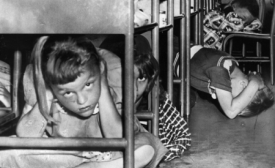russia
With support growing for independence just months before Scots decide whether to break up with Britain, outsiders are weighing in with impassioned calls to keep the three-century-old union together.
For over a decade, the United States has promoted a free and open Internet as a central tenet of its foreign policy. To date, this has most visibly involved shaming governments that limit access to online content and developing tools that help individuals circumvent censorship and surveillance.
Public Diplomacy: A Global Phenomenon
In 2013, at least 136 countries were active in public diplomacy, both as principals and/or receivers, and PD activity took place in every region of the world. As represented in Figure 1, the United States, China, India, Russia, Israel, and the United Kingdom were the most mentioned actors in PD stories throughout the year.
Last week I joined several hundred other scholars at the 2014 International Studies Association convention. As expected, opinions on events in Ukraine abound. I was struck by the multiplicity of versions of the same events. More interesting still was how readily scholars were to label different versions as “propaganda.”
While the Klitschko brothers are known as champions of heavyweight boxing, the older brother Vitali is transforming himself into a politician that represents the new Ukraine. Formerly called “Doctor Ironfist,” Vitali is extending his heavyweight champion brand far beyond HBO sports audiences -- he has emerged as the international spokesperson for the pro-Western, pro-reform Ukraine.

Strategically, the default to “propaganda” creates blind spots, its own reverse deception, and most importantly, a lost opportunity.
Latvia is joining Lithuania in banning Russian state television broadcasts because it found that several programs about the Ukraine crisis were tendentious and not in the Baltic nation’s security interests.
Christoph A. Geisler, MIMA Media founder and current MPD candidate speaks about the importance of public diplomacy during geopolitical crises. The “Band Together” program, co-sponsored by the U.S. Consulate in St. Petersburg and MIMA Music, teaches songwriting, recording, and filmmaking by bringing American facilitators to train Russian musicians and NGO leaders in these skills. St. Petersburg Public Affairs Officer Steven J. Labensky states, “I think more important sometimes than the diplomats speaking to each other, are people speaking to each other.”







